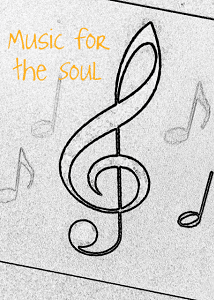It was a typical Sunday afternoon and I found myself dreading my weekly visit with my Grandfather. Yes, I said “dreading,” and yes, nearly ten years later I still feel guilt about that. My visits were consumed with sadness, fear and anger. Where was the cheerful man I’d grown up with? Where was his ability to speak? Why was this happening to such a wonderful person? It’s still something I grapple with and will likely never understand. However, that Sunday afternoon turned out to be different.
It was a sunny, warm day and I found him outside on the community’s patio, half dozing and half staring off into space. I sat next to him and started chatting away, trying to fill the emptiness with words and hoping he’d grasp onto just one of them. After a while I started fidgeting and pulled out my iPod, I wiggled one ear bud into my ear and the other into his ear – thinking nothing of it, really. I put on a Frank Sinatra song, an artist I knew he used to like. What happened next was truly a miracle. He looked at me, started dancing and smiled.
Studies have shown that those suffering from dementia and specifically Alzheimer’s disease are able to process music because it taps into their “procedural memory,” which isn’t affected by the disease the way their “episodic memory” is. The procedural memory revolves around the repetitive and daily routines we all experience, and when we hear music, this is where our music memories are stored. Episodic memories are memories revolving around life events; this is often one of the first areas of the brain destroyed by dementia.
Music has the power to ignite emotion, encourage socializing and some believe it can even improve cognitive ability but most of all, it can allow you and your loved one to share a moment of true togetherness.
Here are some ways to introduce it back into their lives:
– During your next visit, bring an iPod or other listening device. Have their favorite songs, artists or albums downloaded and let them keep it.
– Look into local performances and consider taking them on an excursion to see a musical or opera.
– Inquire about weekly sing-a-longs, or on-site performances at the community they’re in. If the community doesn’t already host these events, suggest that they do! A karaoke night would be a great addition to any activities calendar
“Music can lift us out of depression or move us to tears – it is a remedy, a tonic, orange juice for the ear. But for many of my neurological patients, music is even more – it can provide access, even when no medication can, to movement, to speech, to life. For them, music is not a luxury, but a necessity.”

